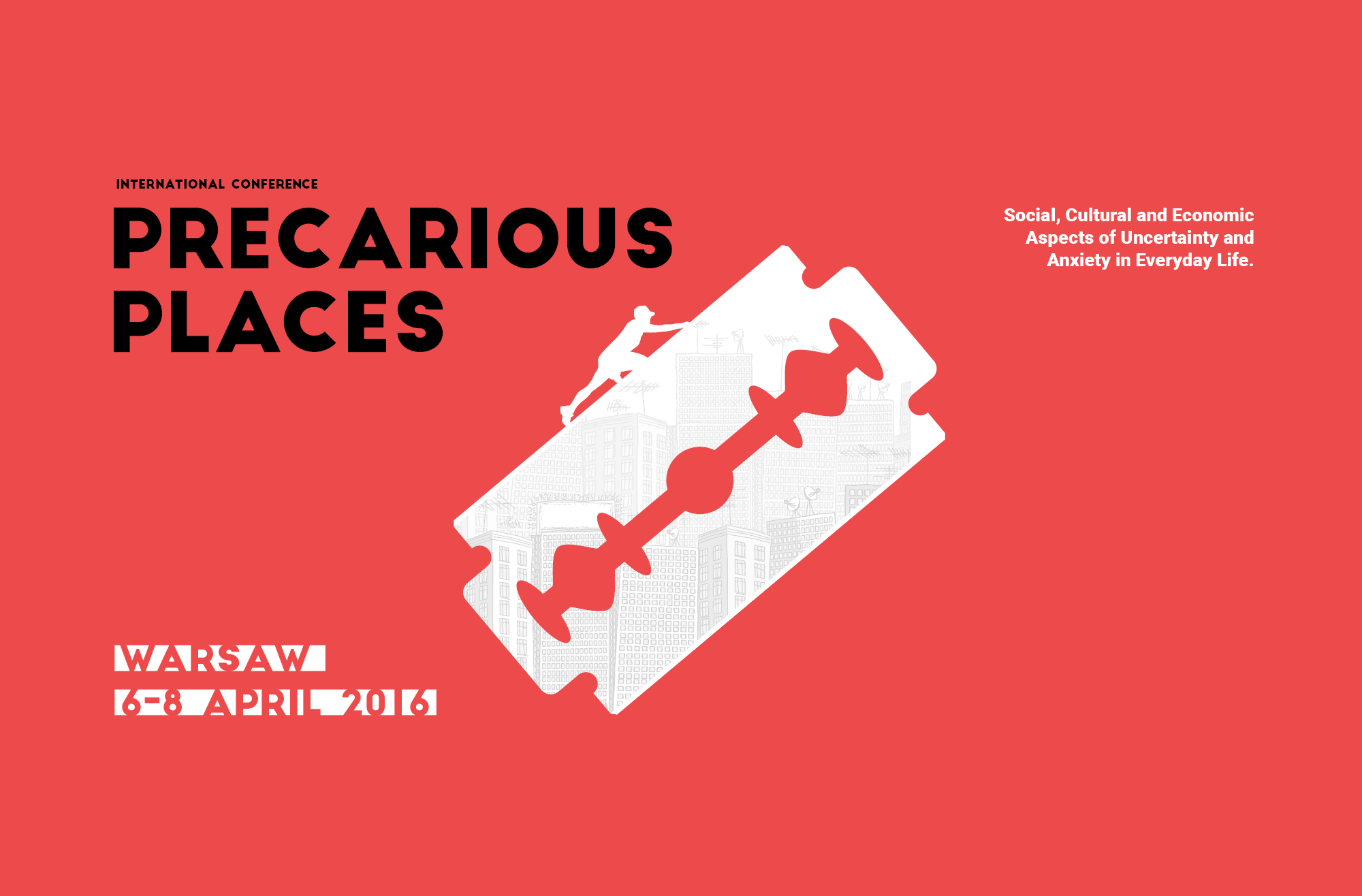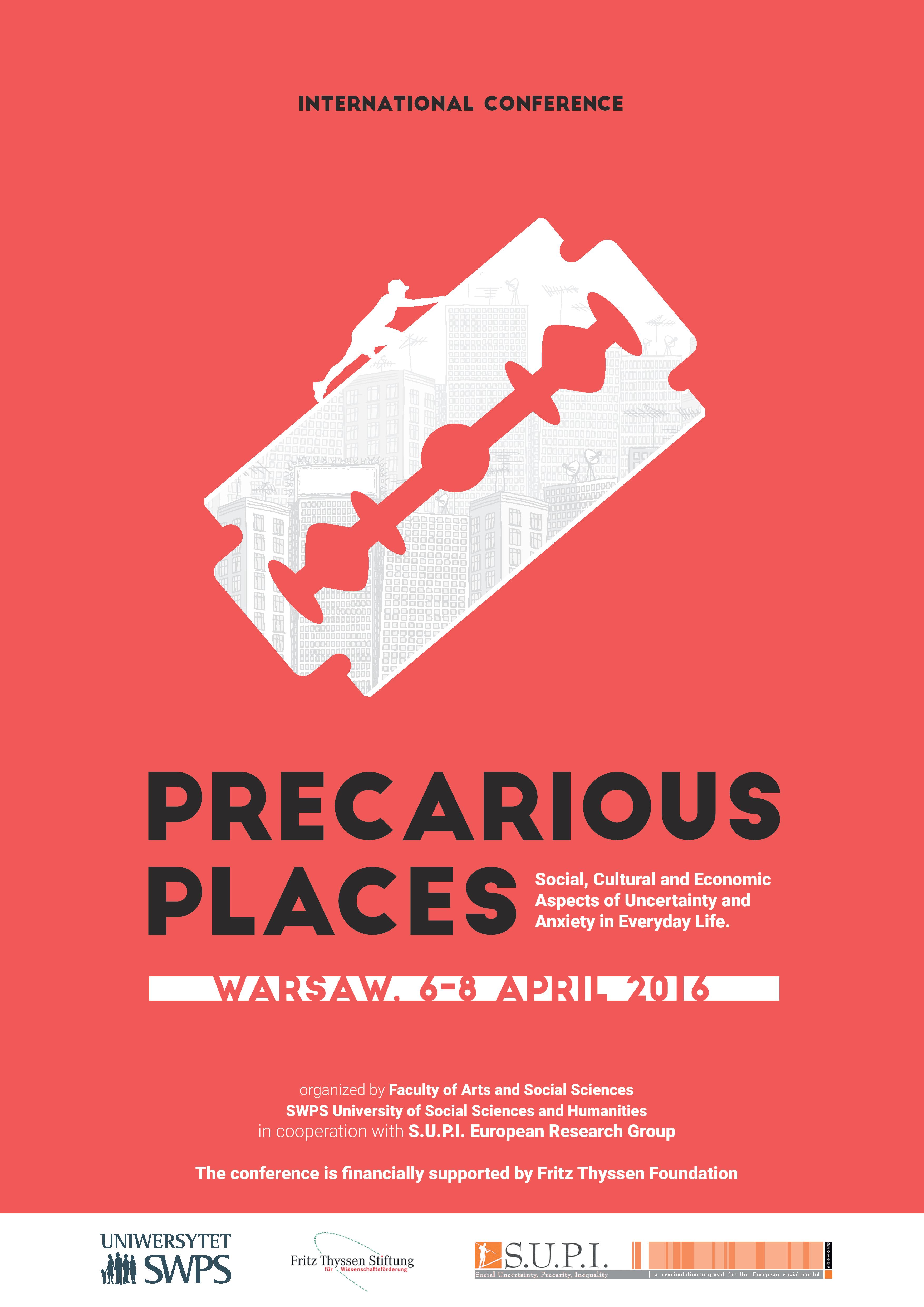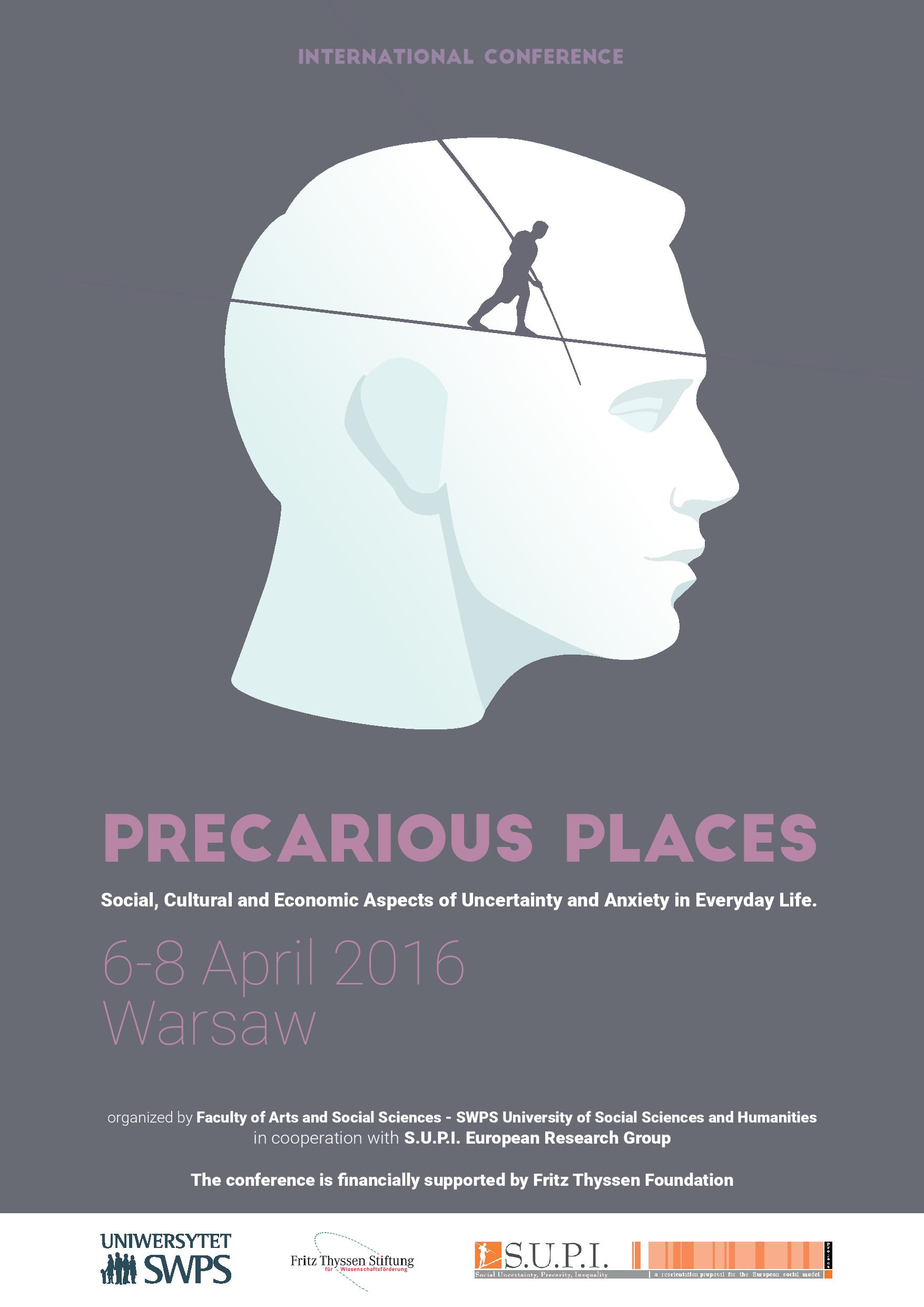Precarious Places


About the Conference
In Guy Standing's now well known comparison of precariat and proletariat, the former may well be called a class in the making rather than a fully formed and organized social class. The provisional and uncertain character of the range of the category in a way reflects the range of problems and questions which can be raised in the context of thinking about precarity in the European and global contexts of the contemporary world. The recent years have shown some ways in which precarity has changed its status and has become a strongly debated area not only in economic and political disputes, but also in philosophical debates and various fields of research related to cultural studies. The broadness of the contemporary spatial scope of precariat and the numbers of men and women affected by the several decades of the neoliberal insistence on various kinds of flexibility has put in motion numerous new mechanisms of exclusion and marginalization which, in turn, highly extended the range of anxieties and uncertainties frequently resulting not only in anger and protests, but also in self-alienation and loss. What seems to be crucial in such a predicament is the necessity of finding ways of expressing the problems involved in precarity which, as a new social phenomenon, has not, as Standing phrases it, found "the Voice to bring its agenda to the fore."
Papers presented at the conference will address issues related to precarity and precariousness in the contemporary world from possibly broadest perspectives of different academic disciplines and approaches. Due to the heterogeneous nature of the phenomenon we would like to raise the question of the "where" of the precarious, of the diversified places or spaces in which precarity affects everyday life by way of increasing uncertainty and anxiety. Viewing the problem of precarisation from such a topographic perspective will result in drafting a geographical map of the distribution precarious places, but it may also allow for a rethinking of the ideas of security and certainty not only in terms of politics, economy or sociology, but also in a broader perspective of what is reflected, imagined and projected in the idea of "good life".


Keynote speakers:
- Prof. Lennart Nørreklit, Aalborg University
- Prof. Piotr Sałustowicz, University of Social Sciences and Humanities
- Prof. Jan Sowa, Independent Scholar
Organizers

Organized by:
- SWPS University of Social Sciences and Humanities
- S.U.P.I. European Research Group
The conference is financially supported by Fritz Thyssen Foundation.

Conference Organisers:
- Prof. Rolf-Dieter Hepp (Freie Universität Berlin)
- Prof. Tadeusz Rachwał (SWPS University of Social Sciences and Humanities)
- Dr. Agnieszka Pantuchowicz (SWPS University of Social Sciences and Humanities)
- Dr. Anna Warso (SWPS University of Social Sciences and Humanities)
Venue
The conference venue will be located in the main building of the University of Social Sciences and Humanities, ul. Chodakowska 19/31, Warsaw.



